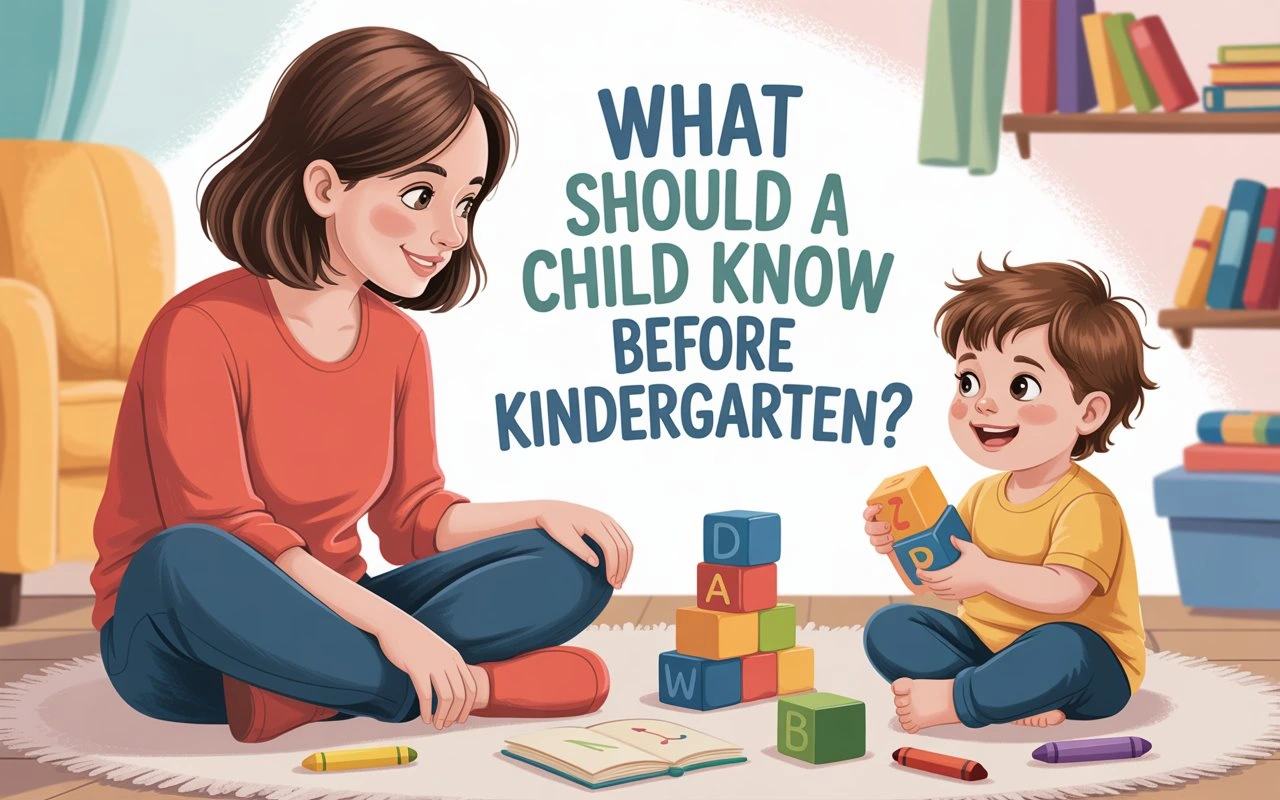What Should a Child Know Before Kindergarten? Full Skill Breakdown




Starting kindergarten is a big step for any child. It marks the beginning of a new environment, new routines, and a more structured learning experience. Many parents feel unsure about what their child should know before entering school. The goal is not to make the child academically advanced, but to make them confident, comfortable, and ready to learn.
Kindergarten readiness simply means that a child has a balance of cognitive, social, emotional, physical, and self-care skills. These skills help them adjust easily and enjoy their learning journey.
.webp)
Below is a complete explanation of each skill area, supported by detailed information to help parents understand what matters most.
Cognitive skills help children think, understand, remember, and solve simple problems. These are the early building blocks for reading, writing, and math. Children don’t need to master everything, but they should show familiarity with basic concepts.
A child should understand simple ideas, recognize familiar letters and numbers, and follow basic instructions. These everyday skills make classroom learning smoother and reduce confusion during group activities.
Language is the foundation of all classroom communication. Children should be able to talk clearly, listen to others, and express their ideas. Literacy skills slowly develop through stories, conversations, and playful reading activities.
A child should speak in simple sentences, respond to questions, and enjoy books. They don’t need to read, but they should show curiosity about words and sounds.
Math readiness is not about solving sums. It’s about understanding numbers, comparisons, and everyday reasoning. Children can learn these skills naturally through play.
A child should be comfortable with counting small quantities, recognizing shapes, and understanding simple comparisons.
Children need physical skills to participate comfortably in school activities. These include fine motor skills (small hand movements) and gross motor skills (whole-body movements).
A child should be able to move confidently, use basic classroom tools, and control hand movements needed for writing or drawing.
Kindergarten is a social environment. Children must learn how to interact with others, express emotions, and follow rules. These skills take time to develop and grow best through play.
Children should be comfortable being around others, sharing space, expressing feelings, and adjusting to routines.
Teachers regularly guide children, but they also expect basic independence. Simple tasks empower children and give them confidence during the school day.
A child should manage basic hygiene, take care of their belongings, and perform small tasks without constant help.
These extra skills make daily school life more comfortable. Children who develop these habits often settle into kindergarten faster.
As children grow, they learn best through a mix of home guidance and structured, activity-based learning. Many parents today look for support that is flexible, child-friendly, and designed to match a child’s pace. Interval Learning offers this kind of balanced approach.
With experienced teachers, interactive online classrooms, and a focus on foundational skills, Interval Learning helps young children strengthen the abilities they need before entering school. The sessions are gentle, engaging, and designed to help children build confidence through everyday learning activities.
Many parents wonder whether their child is prepared for the first day of school. Kindergarten readiness isn’t just about knowing letters or numbers — it’s also about communication, basic independence, social comfort, and the ability to follow simple routines.
A quick readiness check helps you understand where your child feels confident and where they may need a little support.
For a full, detailed breakdown, explore our blog
Choosing the right online kindergarten program can feel confusing for parents, especially with so many classes available today. The goal is to find a program that supports early learning, builds confidence, and helps children enjoy their first school experiences.
To make this easier, you can explore our helpful guides, whether you want to understand
| How to choose the right online kindergarten program |
| How online nursery classes work |
| Why preschool education is important for development |
| 20 Fun LKG activities for home and school. |
Each guide gives clear, simple information to help you make the best decision for your child.
Interval Learning’s Online Kindergarten Program helps children develop all the readiness skills needed for school, from early literacy and number concepts to social, emotional, and self-care abilities.
The classes are interactive, activity-based, and guided by experienced teachers who support each child individually.
At Interval Learning, we also offer LKG and UKG online tuition, making early education structured and gradual:
If you want your child to enter kindergarten with strong skills and full confidence, Interval Learning provides a safe, engaging, and supportive learning environment tailored to their growth.
A child should know basic letters, numbers, shapes, and colors, and be able to communicate clearly, follow instructions, play with peers, and manage simple self-care tasks.
If your child can communicate, follow simple routines, understand basic concepts, and manage everyday tasks independently, they are generally prepared for kindergarten.
Communication, counting, recognizing letters, fine motor control, sharing, turn-taking, and bathroom independence are the core readiness skills.
Read together daily, practice writing their name, encourage conversations, allow them to do simple tasks independently, and play games that involve counting or sorting.
Yes. Interval Learning provides a structured online kindergarten program designed to build all essential school readiness skills through interactive lessons.
Yes. We offer dedicated LKG and UKG programs with activities, phonics training, early math lessons, and foundational skill-building for early learners.
Our classes develop early literacy, numeracy, communication, confidence, and good habits — everything a child needs to start school successfully.